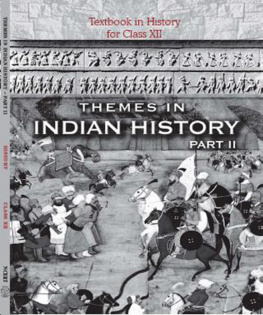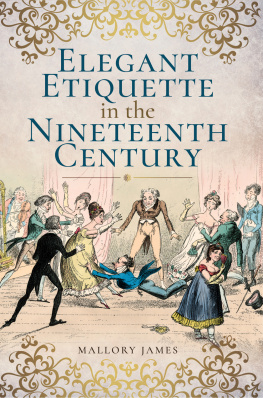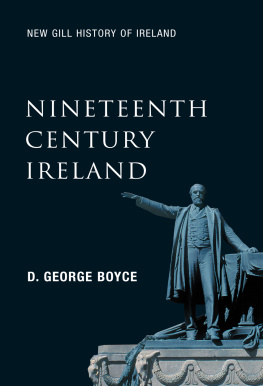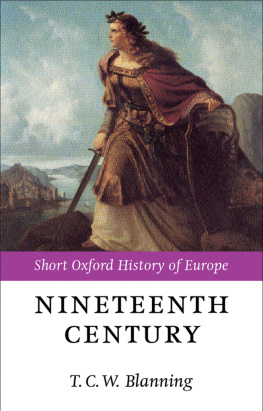PREFACE.
Table of Contents
This little volume constitutes one number of the Christian Herald Library series for 189697. The title indicates the scope and purpose of the work. Of heavy reading the reader of to-day no doubt has a sufficiency. Of light reading, that straw-and-chaff literature that fills the air until the senses are confused with the whirlwind and dust of it, he has a sufficiency also. Of that intermediate kind of reading which is neither so heavy with erudition as to weigh us down nor so light with the flying folly of prejudice as to make us distracted with its dust, there is perhaps too little. The thoughtful and improving passage for the unoccupied half hour of him who hurries through these closing years of the century does not abound, but is rather wanting in the intellectual provision of the age.
Let this volume serve to supply, in part at least, the want for brief readings on important subjects. Herein a number of topics have been chosen from the progress of the century and made the subjects of as many brief studies that may be realized in a few minutes' reading and remembered for long. Certainly there is no attempt to make these short stories exhaustive, but only to make them hintful of larger readings and more thoughtful and patient inquiry.
The Editor is fully aware of the very large circulation and wide reading to which this little volume will soon be subjected. For this reason he has taken proper pains to make the work of such merit as may justly recommend it to the thoughtful as well as the transient and unthoughtful reader. It cannot, we think, prove to be a wholly profitless task to offer these different studies, gathered from the highways and byways of the great century, to the thousands of good and busy people into whose hands the volume will fall. To all such the Editor hopes that it may carry a measure of profit as well as a message of peace.
J.C.R.
Notable Events of the Nineteenth Century.
Table of Contents
Crises in Civil Society.
Table of Contents
BRUMAIRE.
Table of Contents
THE OVERTHROW OF THE FRENCH DIRECTORY.
The eighteenth century went out with the French Directory, and the nineteenth came in with the Consulate. The coincidence of dates is not exact by a year and a month and twenty-one days. But history does not pay much attention to almanacs. In general our century arose with the French Consulate. The Consulate was the most conspicuous political fact of Europe in the year 1801; and the Consulate came in with Brumaire.
"Brumaire" is one of the extraordinary names invented by the French Revolutionists. The word, according to Carlyle, means Fogariousthat is, Fog month. In the French Republican calendar, devised by the astronomer Romme, in 1792, Brumaire began on the twenty-second day of October and ended on the twentieth day of November. It remained for Brumaire, and the eighteenth day of Brumaire, of the year VIII, to extinguish the plural executive which the French democrats had created under the name of a Directory, and to substitute therefor the One Man that was coming.
The Directory was a Council of Five. It was a sort of five-headed presidency; and each head was the head of a Jacobin. One of the heads was called Barras. One was called Carnot. Another was called Barthelemy. Another was Roger Ducos; another was the Abb Sieyes. That was the greatest head of them all. The heads were much mixed, though the body was one. In such a body cross counsels were always uppermost, and there was a want of decision and force in the government.
This condition of the Executive Department led to the deplorable reverses which overtook the French armies during the absence of General Bonaparte in Egypt. Thiers says that the Directorial Republic exhibited at this time a scene of distressing confusion. He adds: "The Directory gave up guillotining; it only transported. It ceased to force people to take assignats upon pain of death; but it paid nobody. Our soldiers, without arms and without bread, were beaten instead of being victorious."
The ambition of Napoleon found in this situation a fitting opportunity. The legislative branch of the government consisted of a Senate, or Council of Ancients, and a Council of Five Hundred. The latter constituted the popular branch. Of this body Lucien Bonaparte, brother of the general, was president. Hardly had Napoleon arrived in the capital on his return from Egypt when a conspiracy was formed by him with Sieyes, Lucien and others of revolutionary disposition, to do away by a coup with the too democratic system, and to replace it with a stronger and more centralized order. The Council of Ancients was to be brought around by the influence of Sieyes. To Lucien Bonaparte the more difficult task was assigned of controlling and revolutionizing the Assembly. As for Napoleon, Sieyes procured for him the command of the military forces of Paris; and by another decree the sittings of the two legislative bodies were transferred to St. Cloud.
The eighteenth Brumaire of the Year VIII, corresponding to the ninth of November, 1799, was fixed as the day for the revolution. By that date soldiers to the number of 10,000 men had been collected in the gardens of the Tuileries. There they were reviewed by General Bonaparte and the leading officers of his command. He read to the soldiers the decree which had just been issued under the authority of the Council of the Ancients. This included the order for the removal of the legislative body to St. Cloud, and for his own command. He was entrusted with the execution of the order of the Council, and all of the military forces in Paris were put at his disposal. In these hours of the day there were all manner of preparation. That a conspiracy existed was manifest to everybody. That General Bonaparte was reaching for the supreme authority could hardly be doubted. His secretary thus writes of him on the morning of the great day.
"I was with him a little before seven o'clock on the morning of the eighteenth Brumaire, and, on my arrival, I found a great number of generals and officers assembled. I entered Bonaparte's chamber, and found him already upa thing rather unusual with him. At this moment he was as calm as on the approach of a battle. In a few moments Joseph and Bernadotte arrived. I was surprised to see Bernadotte in plain clothes, and I stepped up to him and said in a low voice: 'General, everyone here except you and I is in uniform.' 'Why should I be in uniform?' said he. Bonaparte, turning quickly to him, said: 'How is this? You are not in uniform.' 'I never am on a morning when I am not on duty,' replied Bernadotte. 'You will be on duty presently,' said the general!"
To Napoleon the crisis was an epoch of fate. The first thing was to be the resignation of Sieyes, Barras and Ducos, whichcoming suddenly on the appointed morningbroke up the Directory. Bonaparte then put out his hand as commander of the troops. Too late the Republicans of the Council of Five Hundred felt the earthquake swelling under their feet. Napoleon appeared at the bar of the Assembly, and attempted a rambling and incoherent justification for what was going on. A motion was made to outlaw him; but the soldiers rushed in, and the refractory members were seized and expelled. A few who were in the revolution remained, and to the number of fifty voted a decree making Sieyes, Bonaparte and Ducos provisional
















![Harvie Christopher - Nineteenth-century Britain: a very short introduction ; [in memorian Colin Matthew]](/uploads/posts/book/137651/thumbs/harvie-christopher-nineteenth-century-britain-a.jpg)
